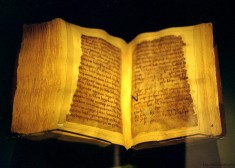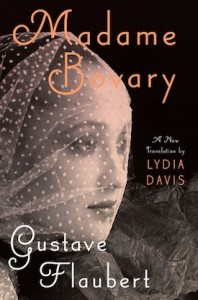French writer and translator Frederic Boyer on the art of translation:
Any literary translation is an appropriation that produces something original. I have translated (the Bible, Shakespeare, Saint Augustine, the Song of Roland …) in order to become someone else, to grab and transform the heritage that was allegedly reserved for me. My need to translate was not primarily cultural or linguistic but rather a need for an internal rupture.
[…]
To translate is to confront the authority of a text, of its language and culture, and of previous translations that often wield the power of legal precedents.
Every culture has its ghosts, and to translate is to lure those ghosts back to life and back to our world, to make the past speak in the present. For me, translating is never simply to receive something and to pass it on or transmit it, but rather, in some vital way, to recall it, to appropriate it, to join forces with it, to become one with it for a time and to subject my writing to the test of this other horizon.
[…]
For me, the act of translation is a quasi-shamanistic act linking different worlds and different times.
Public Books — Translation: Oneself As Another.

Earlier this week, The Independent reported that the first line of Beowulf has been incorrectly translated for hundreds of years. According to research by Dr. George Walkden, a University of Manchester lecturer,  the Old English word hwæt, which begins the English language’s oldest epic poem (“Hwæt! We Gar-Dena in gear-dagum, þeod-cyninga, þrym gefrunon, hu ða æþelingas ellen fremedon!â€), should not be read as an interjection separate from the rest of the first line  (“Listen! we have heard of the might of the kingsâ€),  but rather as part of a complete exclamatory sentence—something like “How we have heard of the might of the kings.â€
Citing research that “there’s no record of the Anglo-Saxons using exclamation marks, or any other form of punctuation, besides the full stop (or ‘point’) and the occasional semicolon†Walkden declares all previous interpretations—â€â€˜What ho!’ (Earle 1892), ‘Hear me!’ (Raffel 1963), ‘Attend!’ (Alexander 1973), ‘Indeed!’ (Jack 1994), and ‘So!’ (Heaney 2000)â€â€”to be wrong.
Did everyone get the first line of Beowulf wrong.. or did Seamus Heaney get it right? | MobyLives.

Melville House (an indy publisher) has withdrawn from future participation in the Best Translated Book Awards citing Amazon’s “predatory and thuggish practices…â€
Big news, and worth noting, considering this house publishes more in translation than Knopf or Farrar, Strauss and Giroux.
(via The Millions)

Lydia Davis, whose new translation of Madame Bovary comes out September 23, blogs at The Paris Review Daily about why we need yet another translation of Flaubert.
(via The Millions)
A look at the news and events happening in the Libraries at Waubonsee Community College

